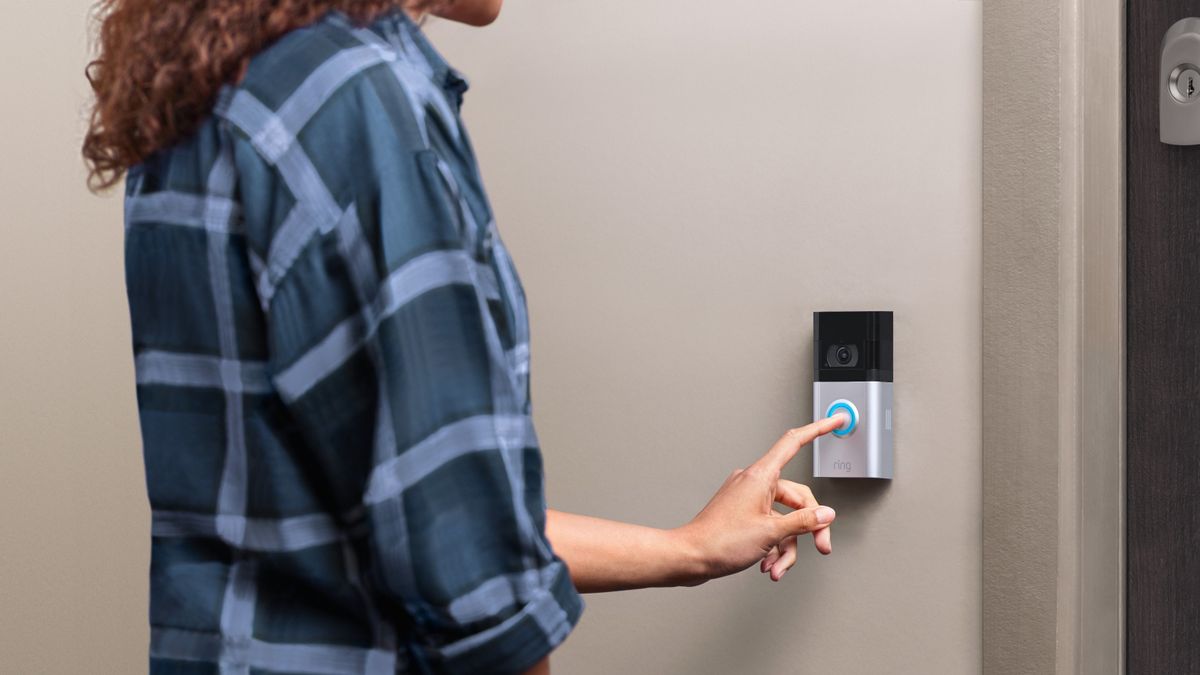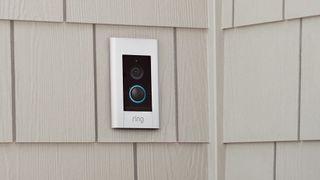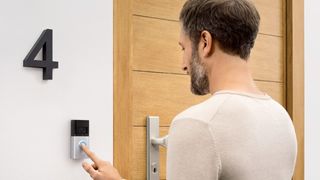
Doorbell cameras are increasingly popular among people worried about protecting themselves and their property. And yet a landmark court case suggests the biggest threat to your livelihood and financial security might be the devices themselves.
In Oxfordshire, United Kingdom, Jon Woodward was taken to court by a neighbor, Dr Mary Fairhurst, over a collection of CCTV cameras he had installed, including Amazon Ring doorbells. And he's now facing a potential fine of £100,000 (around $137,300 / AU$184,872) for invading her privacy.
• Read more: Best doorbell cameras • Best Ring cameras
The crunch point came when he put another camera on his neighbor's wall. His aim, he said, was to catch anyone trying to steal his car, as three people had attempted to do in 2019. Dr Mary Fairhurst complained that Woodward's collection cameras amounted to harassment, a nuisance and a breach of the Data Protection Act 2018.
Her Honor Judge Melissa Clarke ruled in her favor. Significantly, though, she confirmed that Woodard, an audio-visual engineer, did have the right to film from his doorstep, whether with the Amazon Ring or any other device. However, the specific offence was to record audio, which was able to pick up conversations more than 40 feet away.
The judge said: "I am satisfied that the extent of range to which these devices can capture audio is well beyond the range of video that they capture, and in my view cannot be said to be reasonable for the purpose for which the devices are used by the Defendant, since the legitimate aim for which they are said to be used, namely crime prevention, could surely be achieved by something less."
Dr Fairhurst is expected to be awarded damages at a court hearing next month. You can read the full judgement here.
Get the Digital Camera World Newsletter
The best camera deals, reviews, product advice, and unmissable photography news, direct to your inbox!

What the judgement means
It's important to point out that the judge's ruling doesn't mean there's anything illegal about using an Amazon Ring device; you just have to be careful that how you use it doesn't infringe other people's right to privacy.
In this situation, recording audio from 40 feet away was not considered reasonable. But if Woodward had had a 60 feet perimeter around his property, say, we'd assume the ruling would have been very different.
It's also worth noting that the judgment by a county court does not set a binding legal precedent in the UK: only High Court and Court of Appeal rulings can do that.
That said, judges don't usually like to overturn other judges' rulings unless there's good cause, so this case certainly likely to be influential at the very least. We'll also be keeping an eye out for similar cases in the EU, where privacy generally has stronger protections than the UK.

Amazon's response
On its part, Amazon seems to be taking the view that the judgement doesn't mean there's any problem with the tech itself, just how you use it.
Hence the company has released a statement that puts the onus purely on consumers to operate its devices within the law. It reads: "We strongly encourage our customers to respect their neighbors' privacy and comply with any applicable laws when using their Ring device.
"We've put features in place across all our devices to ensure privacy, security, and user control remain front and centre, including customizable Privacy Zones to block out 'off-limit' areas, Motion Zones to control the areas customers want their Ring device to detect motion and Audio Toggle to turn audio on and off."
In short, don't expect Amazon to rush to your help if its tech lands you in hot water with the law, as it'll basically be your fault. And it's probably best to be nice to your neighbours and take their concerns into account, rather than waiting to be taken to court and fined.
Read more:
Best outdoor security cameras
Best indoor security cameras
Best fake security cameras
Tom May is a freelance writer and editor specializing in art, photography, design and travel. He has been editor of Professional Photography magazine, associate editor at Creative Bloq, and deputy editor at net magazine. He has also worked for a wide range of mainstream titles including The Sun, Radio Times, NME, T3, Heat, Company and Bella.
